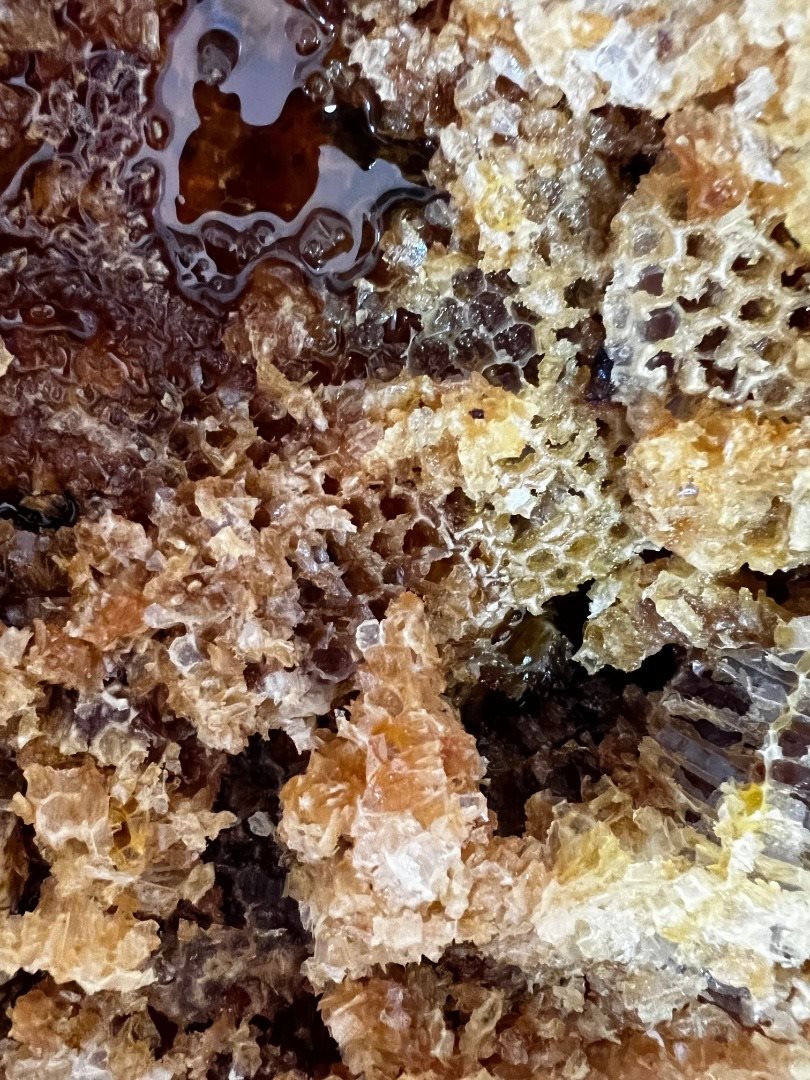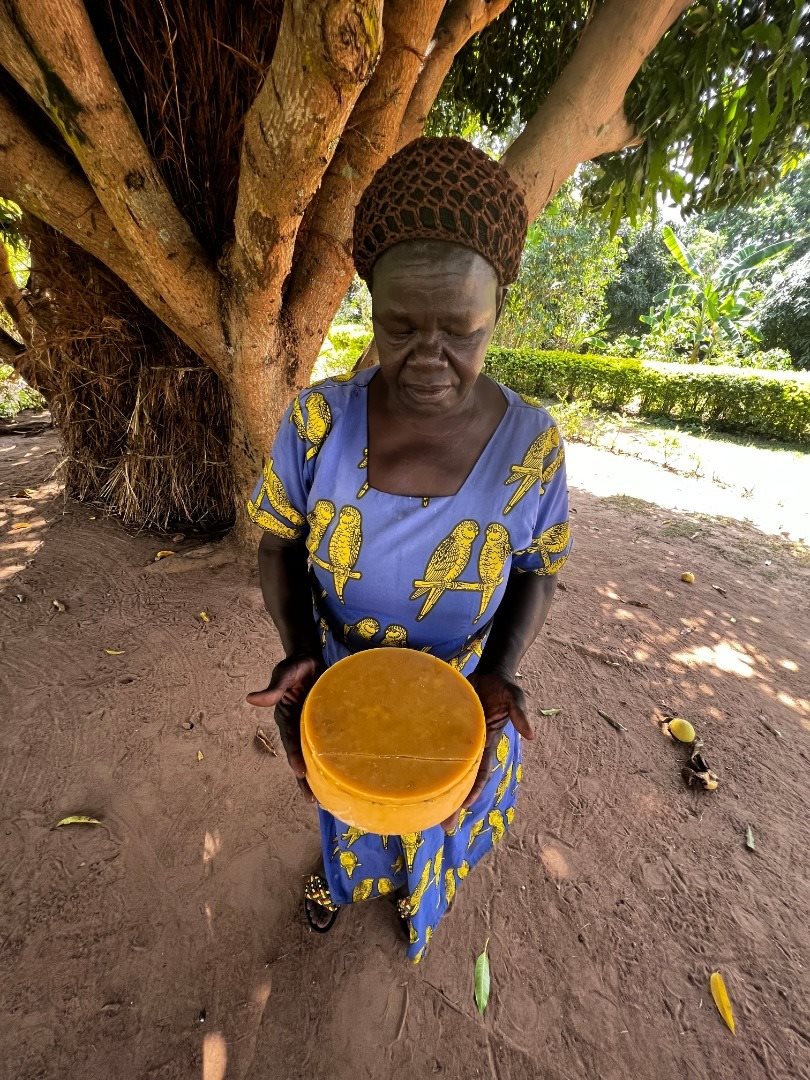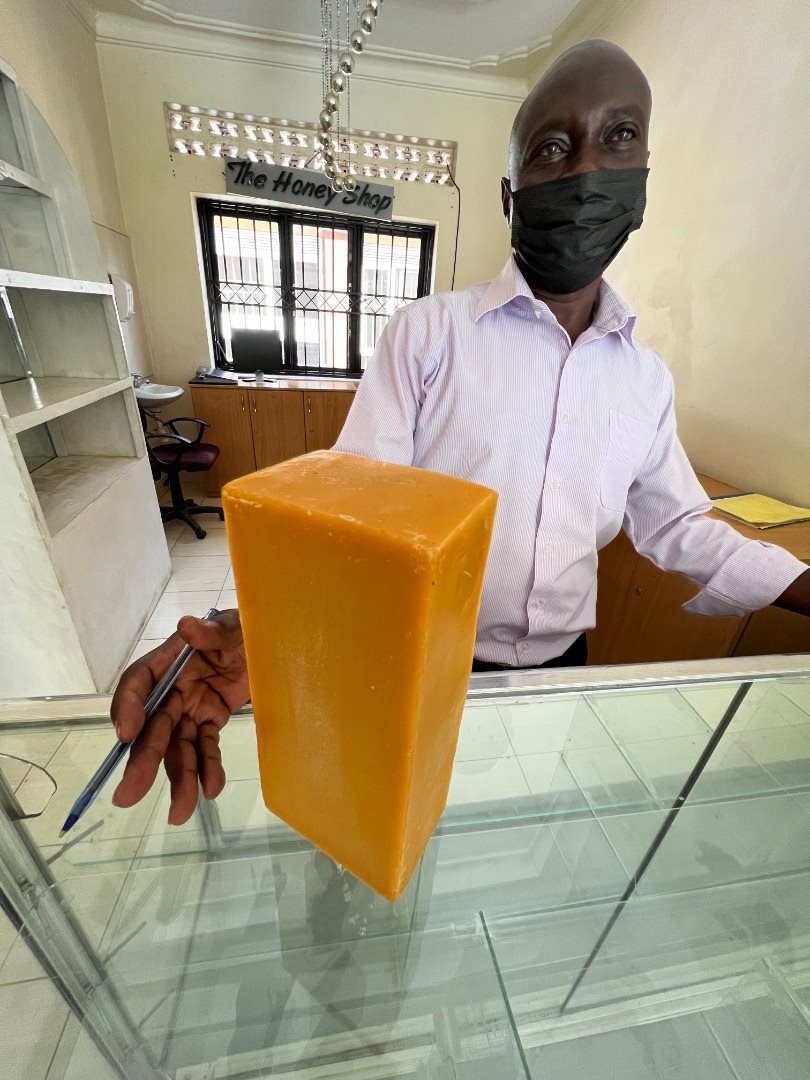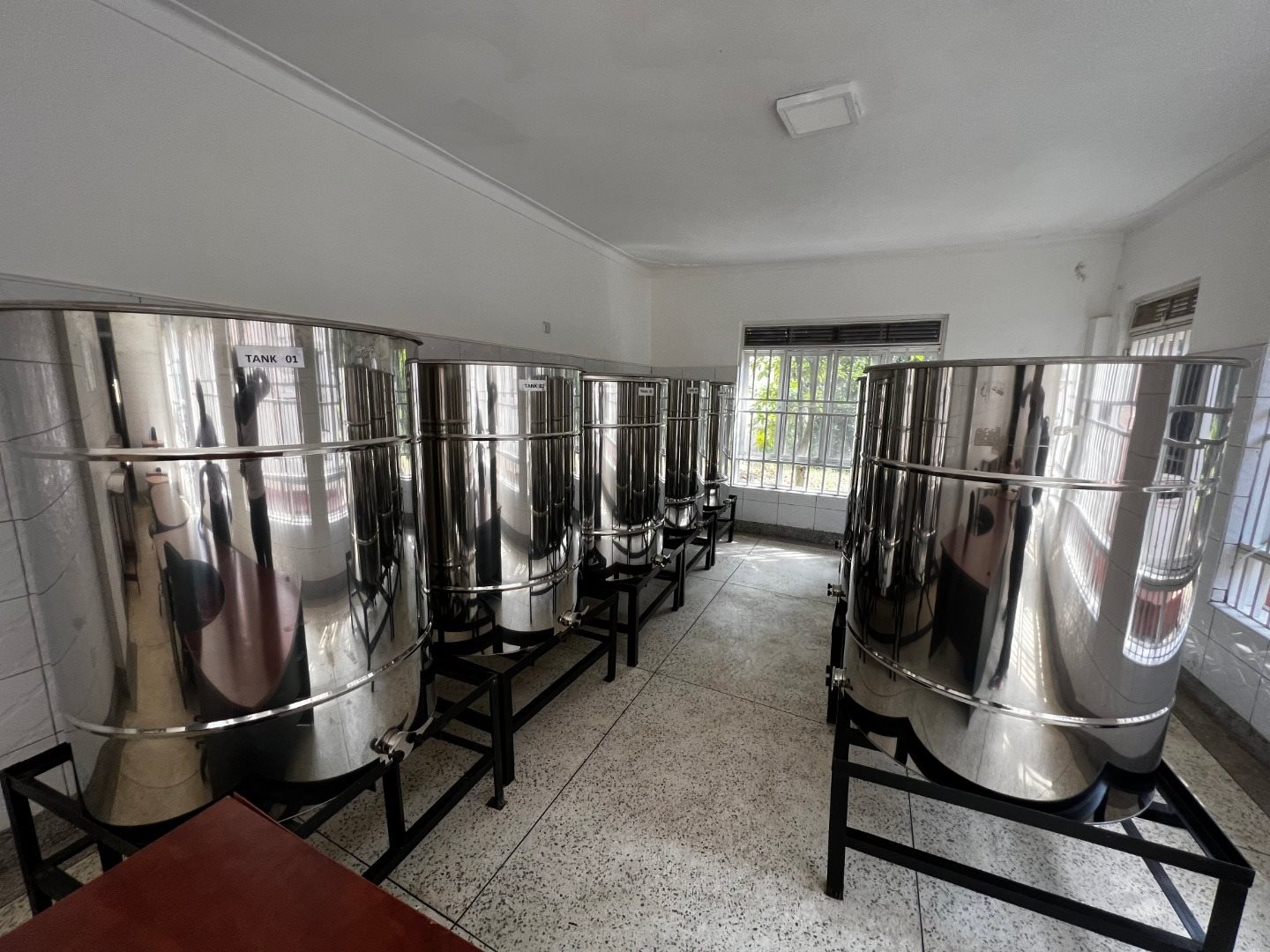Bees on Moringa Trees:
How beekeepers in rural Uganda are selling their unique brand of honey
Article written by Nasser AlQatami.
Tags
 Honey hives arrive for processing. Credit: Nasser AlQatami / UNCDF.
Honey hives arrive for processing. Credit: Nasser AlQatami / UNCDF.
As many know, honey does not expire. If it is properly stored and is pure, it never spoils. This makes it the world’s oldest non-perishable food. Not only does it contain a nutritious macronutrient, but it is much better than refined sugar for anyone’s health.
When it comes to the farms of one of Uganda’s newest cities, Arua, honey is not only a source of nutrition, but also a source of income for many. The area’s unique flavor of honey, where its bees feed on a vast array of nectars and pollen, has grabbed the attention of buyers from different parts of the world.
Honey Pride Arua is a honey processing and packaging company in the northwestern part of Uganda. The company prides itself in having a business model that includes rural communities, women, older persons and persons with disabilities (PWDs). Apiculture is not new in the region, but with 100% Ugandan shareholding and this inclusive business model, the company has a distinct edge to it.
This is one of the reasons why the UN Capital Development Fund (UNCDF), through the START facility, supports this small business with technical assistance in the form of project development and finance structuring to develop an investible project with a concessional loan of US$ 47,510 for the purchase of modern honey processing equipment, to expand its facility and productivity. The START facility is a unique partnership between the Private Sector Foundation of Uganda, Uganda Development Bank and UNCDF designed to support the growth and development of micro, small, and medium enterprises (MSMEs) in Northern Uganda as part of the Development Initiative for Northern Uganda funded by the European Union.
Moreover, the company not only provides a place for suppliers to sell and package their goods, but it also delivers training programmes for local beekeepers.
One of the local beekeepers, Okhdeyo Nola, 72, has been in the business since 2005. She produces 115 to 165 kilos of honey a year, depending on the rainfall. Because the hives are colonized at different times, the production rates are different each year in accordance with the weather. She has been producing honey since 2005 but joined Honey Pride Arua in 2017.
 Mrs. Nola holds up one of the other products she makes from beekeeping, a mound of wax. Credit: Nasser AlQatami / UNCDF.
Mrs. Nola holds up one of the other products she makes from beekeeping, a mound of wax. Credit: Nasser AlQatami / UNCDF.
Nola said: “I used to sell my honey in the free market, but the market has no predictability, and nobody will buy in bulk. I joined another company to sell all my honey, back in the day, but their business went bust. I am happy to sell it to Honey Pride Arua because they have great demand, but they also are OK with me selling some of it in the free market as I please.”
This demand has opened the way for Nola not to waste any of her produce, whatever remains of her honey is always welcome at Honey Pride Arua, after passing their quality checks. Her farm lies on the border with the Democratic Republic of Congo and her bees feed on the lush sprawling forestry of the region and the abundance of farm crops. She said that her bees have taken a liking to the moringa tree and always flock to it. She believes it gives the honey a medicinal quality.
“Honey Pride has improved my income; it helps me pay school fees on time. This includes my son’s university fees as he is now getting his Master’s Degree at Kyambogo University studying Engineering. Also, I support my 2 nieces and 2 nephews.”
Head of Planning and Operations, Sam Aderubo, at Honey Pride Arua attests to the need for local beekeepers to ensure that all their honey will be purchased in order to produce even more. With the loan that UNCDF provided, it helped the company to buy more equipment that will help them store more honey.
 Mr. Sam Aderubo explains the need for expansion at Honey Pride Arua headquarters. Credit: Nasser AlQatami / UNCDF.
Mr. Sam Aderubo explains the need for expansion at Honey Pride Arua headquarters. Credit: Nasser AlQatami / UNCDF.
He said: “When we receive honey from local farmers, it comes in combs, then after pressing and filtering it, we store in the settling tanks. It stays there for about 30 days, during that time there is a process that takes place, which includes the escaping of air bubbles. Once it's settled, we can go ahead with the packaging process. With the new equipment, our company can store the excess honey in tanks for the times when honey is in low season and in high demand.”
The company now has 8 settling tanks, each with a capacity of 1,000 kgs of liquid honey. Aderubo notes that they are now capable of storing around 10 tonnes of liquid honey at any one point in time. This allows them to propel their production to more than just Arua, but buyers from neighboring countries like Rwanda and Kenya. The company has recently submitted samples to a German company and are in the process of being approved, if this happens, they will need to produce more than 15 tonnes a month to keep up with demand.
 With UNCDF support, Honey Pride Arua were able to expand their storage units, this helps them have honey throughout the year, if needed. Credit: Nasser AlQatami / UNCDF.
With UNCDF support, Honey Pride Arua were able to expand their storage units, this helps them have honey throughout the year, if needed. Credit: Nasser AlQatami / UNCDF.
It’s important to note that interest from a foreign company can be the best way for businesses in the least developed countries (LDCs) to bridge the gap of the “missing middle” and stir up more interest in the region’s honey, which means more purchases from regional beekeepers and more jobs for locals.
Beekeepers, like Nola, can put more effort into honey production should there be more demand. Also, the presence of more bees allows for faster and better pollination in a part of Uganda that relies on subsistence farming. There have been studies in Africa that have proved that bee pollination increases the quality and quantity of cash crops. Aside from moringa trees, Nola also grows eucalyptus, pine, avocado, jack fruit and guava. She says: “I place the hives on natural trees on wires, under shades.”
As micro, small and medium enterprises like Honey Pride Arua grow, the options for locals in Arua become more varied, which allows for better markets. Honey Pride Arua seeks expansion and exposure to its work, in order to thrive.
In the coming years, and starting with the new production season, the company aims at exploring ways they can increase productions while diversifying their sales to different locations.